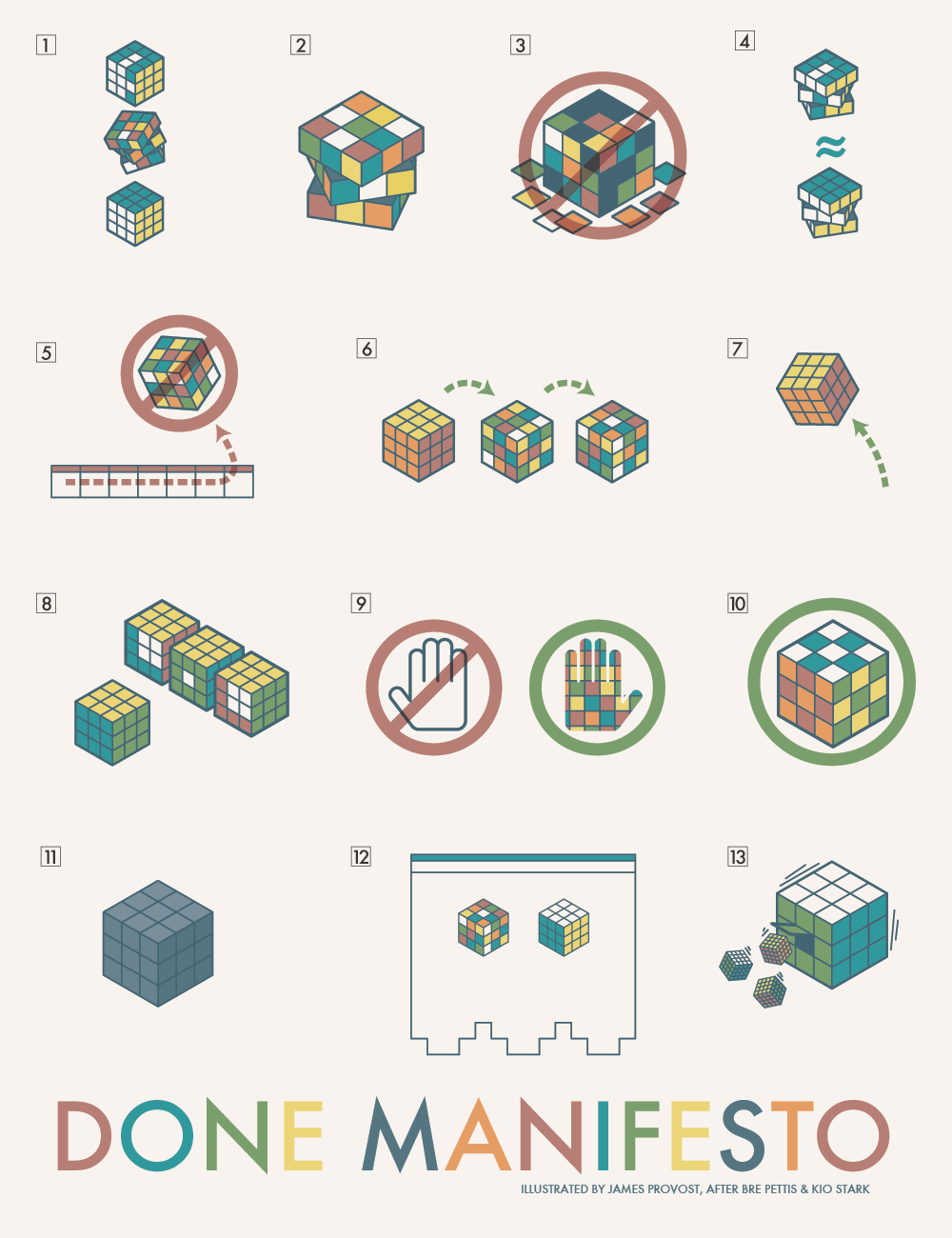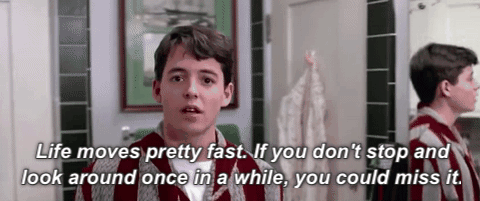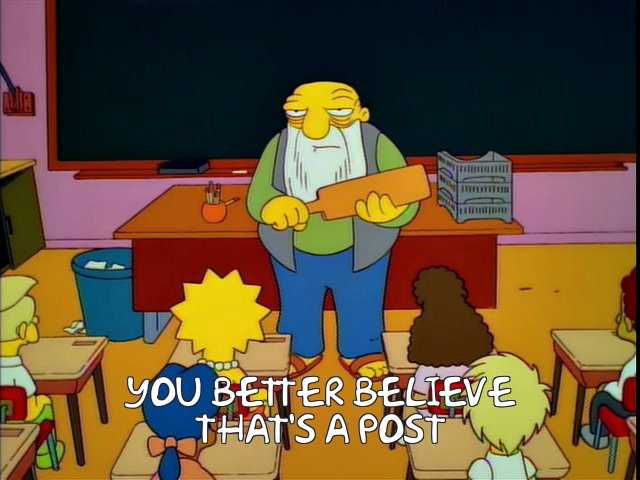I really enjoy making things! Whether it’s code, podcasts, graphics (mostly in relation to the other two), photography, streaming, or very occasionally, costumes, I find the process of making content rewarding and fulfilling. 🤩
And it must be, just at a little bit, right? Why else would so many kids in the US want to grow up to be a YouTuber / Vlogger, or why do so many folks make podcasts even though 99% of them don’t make any money1?
For me, it helps to feel like making a small impression on the world, and to move away from the gargantuan unending stream of consumption of media… by creating more media, of course! But for you, your motivation could be something completely different. Maybe you want to turn your hobby into a hustle, but haven’t quite made it—I may have some news for you—or you see the joy that content creation brings to other people in terms of the parasocial relationships your work can create.
Whatever your motivations, making content—an undertaking unto itself—can be hard to do on top of all the other responsibilities you may have: long shifts, irregular schedules, kids, classes, bad clients, rude customers, rough co-workers, health… the list goes on! So for those of you working on a side-hustle, making art, or just putting your creative talents out there, keep up the amazing work. 👏

I’m definitely not an expert, but since 2015 I’ve been making content as part of the Nickscast—Podcasts, YouTube videos, streaming + an annual charity event, and more—on top of my day-to-day responsibilities as a human and 9-5 software developer. While that definitely bestows upon me some privilege, I’m hoping that some of what I’ve learned is useful to you, if only to help avoid burning out. 😬
Most of the things that I’ve learned fall into three big categories:
- Ruthless prioritization
- Preparing for uncertainty
- Accepting limitations
Ruthless Prioritization
This idea has been embedded in my skull from other content creators, and also from working in startups 2, and it sounds cooler than it is. You should know what’s important to you, and focus on those things.
Since that’s easier said than done, let’s break it down.
Do one thing and do it well. This is probably the most important thing—and the thing I am least proficient at—We’re all creative folks, and we all have limited time to do things. Not counting work or sleep, you probably only have eight hours a day, give or take, but life also has to fit in there somehow (e.g. eating, chores, friends, family, etc.). 😫
A direct (and probably obvious) consequence of this is that if you spend time on multiple projects, you have less time to spend on individual projects. The not so obvious part is that moving from one project to another project can often incur a time cost as well for switching contexts as your brain starts getting up-to-speed with the next project. If you had three hours to work on three projects, you’d actually end up working less than an hour on each of them.
If you want to work on many different kinds of things, you’re welcome to do that! There’s nothing stopping you, and nothing wrong with that… But if your goal is to become internet famous or make money, it means you’ll have less time to work on that thing.
It’s hard to get good at multiple things (especially simultaneously), so if you want to improve, focus on doing one thing well. 🤔💭

A fun corollary to all this, when you start prioritizing things, is that you don’t have to keep doing things just because you’d been doing them previously (commonly known as the sunk cost fallacy). You can just stop, and voila, more free time for whatever you really want to do!
Make time to make stuff. Speaking of time, things don’t happen in a vacuum; your next book, track, whatever you’re working on, won’t magically happen if you don’t make time to work on it. I’ve heard lots of stories from content creators who started working on something in college and had a hard time when they graduated, and a lot of this, I think, has to do with the fact that you’ve got less ‘free’ time as a busy adult with many important things to do.
It’s hard, but carving out any amount of time on a regular basis, be it 15 minutes everyday, an hour a week, whatever works for you… that means you’re dedicating time to work on something, and deliberately prioritizing it!
Have a regular schedule. Yes, schedules are boring, and not always realistic or possible, but schedules are predictable, and predictable things are easy to expect. Put a different way, instead of a scheduled thing being boring and predictable, a scheduled event is something to look forward to.
It’s also helpful as a tool for avoiding overstressing. If there’s something I want to work on, I can add it to a list, and get to it when I’ve said aside time. It helps to avoid the challenge of ‘I need to work on this right now‘.
Regular schedules aren’t for everyone—you might be more spontaneous in your creation, or have obligations, like kids, that make it hard to carve out time—but even if you can manage a day a month, or a floating appointment to work on things… it helps! 😌
I try to limit my content creation to 1-2 weeknights, or occasionally a weekend morning, because, for me, overscheduling can be a real problem too!
Use small moments. I used to think that, to get something done, I needed a certain minimum amount of time, and a clean environment, or I had to be at my desk at home… I would effectively create blockers for myself. But there are many small, imperfect moments where something can get done wherever I am. If I’m on a bus or train, I can send emails or take notes, if I’m idly watching TV, I can open my laptop and half-work on something. Small efforts build to bigger ones and are way better than no effort.
Is this about cramming more into less time? No. It’s about recognizing there are lots of idle moments that aren’t satisfying (i.e. flipping between social media apps) into meaningful ones. It’s about ‘perfection is the enemy of done’. It’s about less putting off and more doing!
Preparing for uncertainty

Life is unpredictable. It’s a constant balancing act between life, work, family, friends, hobbies… It’s a lot! While it all ebbs and flows, there are things you can do to even it all out for yourself, and your audience.
Batch work together. Some tasks take a lot of setup. If you’re a photographer, you may need to set up a screen, lighting, the camera, organize a shoot with a subject, and more, and that takes time. If you’re fortunate, you can set things up and leave it be, but you might not be so lucky. Wouldn’t it be great if you could line up a bunch of shoots all at once? That’s the power of batching. 😎
Sometimes tasks don’t require setting up physical materials, but just mental effort. Personally, it’s easier for me to edit a whole bunch of podcast episodes than just one. It’s easier to get in the zone because I’m using the same skills and not thinking about other things.
Plus, if you batch together something like social media work, you can potentially squish all of your content creation into, say, one day, and then schedule the work over the course of a week or more. You get to reap the benefit of one day’s work over multiple days!
Have a consistent release schedule. I’m assuming you push your work out into the world for others to see, and if you do, you’re doing yourself a favour to pick a schedule and stick to it. Why? Because it sets good expectations for you, and for folks who want to see more of your work! You don’t need to pressure yourself into doing any more than what you’ve set out to do, and other folks shouldn’t expect more than what you’ve said you’d do.
How often is often enough to put out content? Focus on what’s reasonable for you, and not any algorithm or what people say you should do. There’s a bit of guesswork here, and if you’re worried, I’d suggest erring on the side of releasing content less frequently than more frequently—You can always decide to create more often, later, but it’s hard (and stressful) to do the reverse! 😬
Build a backlog. When something unexpected comes up at work, you forgot about an appointment or meeting with a friend, or you just aren’t feeling up to it… are you prepared? If you can build up a backlog, you are! Even having one or two pieces of work ready to be released can help maintain a regular schedule and can give you a bit of extra time when you need it.
Repost (and reuse) your work. Posting something online is only the beginning, and odds are, whether it’s due to algorithms or timing, folks won’t see your work. The half-life of a tweet is only 18 minutes for goodness sake! There’s nothing shameful about reposting your work throughout the day, week, or even resurfacing old work months after the fact!
Plus, it turns out there’s tons of meta-work that you put into things that you can post about, or that you can use when you repost things. A photo that was goofy or didn’t quite turn out? That’s a post! Behind-the-scenes? That’s a post! Podcast clip or quote? You better believe that’s a post.
Don’t 👏 feel 👏 ashamed 👏 to 👏 repost 👏 and 👏 reuse 👏 your 👏 content!
Automate all the things! I haven’t got time to be online all the time, and I imagine neither do you. For social media, you can usually schedule posts either directly through a platform, or via sites like Later (Free for 1 social account per platform with 30 posts per platform) or Buffer (Free for 3 social accounts with 10 scheduled posts each). You can also get fancy and post at the ‘right’ times per network, but that’s its own blog post I’m sure. You can also use sites like IFTTT to setup triggers for certain actions, like tweeting Instagram photos as native Twitter photos.
And then there’s likely a million ways you can optimize your own individual processes. My suggestion there would be to take some time, if you can, to learn about ways to be better at what you do 🤷♂️
Accepting Limitations
Eventually, it can get tiring to work on effectively two (or more) jobs at once. Hopefully that feeling doesn’t last forever! If it does, I’m hoping these suggestions help.

You're all you've got.
Take a break. Take a day, a week, a month. Let people know you’re taking a break! Will this slow whatever progress you’re making? It might, but burning out will definitely slow you down. Folks are pretty understanding. Your life is multifaceted and interconnected; you can compartmentalize how you feel, but it has a tendency to leak into other areas of your life so just take a break to feel better. You’re the most important person in all this; look after yourself!
Work with what you’ve got. There are folks who have the best equipment, the best tools, and oodles of free time, living their dream. That ain’t you and that’s ok. You have a different schedule, different duties, and a different life. It’s ok to not be where you want to be. Recognize that, and work towards where you want to be, but plan for where you are and what you’ve got!
Focus on high leverage work. Taking my podcast as an example, there are a ton of things to be done: episode scripting, artwork, editing, recording… and all of that has to fit into the time I have, but not all of it is equally important. Some of the work I do unblocks other people’s work—when I finish a script, the other voice actors can record independently—or makes it easier for me to do other work—creating a work schedule lets me know how much time I actually have to work.
Whether it’s work that unblocks others or makes development easier, high leverage work is work where you’re focused on what’s important. Some parts of the podcast, for example, just don’t matter as much. It’s not critical to have individual episode artwork, and certainly not if my choices are that or finish editing another episode!
If you’re thinking about social media, focus on the platforms that you use, and don’t put as much effort (or automate) the ones that you don’t use.
Promote as much as you’re comfortable. I tend to be more introverted, and promoting work is hard for me because I just don’t generally talk as much (or as loudly) as other folks. That makes it hard to grow any of my work because I’m afraid to speak up. While I’ve worked on this (and continue) to work on this, it’s ok to do only what you can! Maybe you could grow more or grow faster if you did more promotion, but then you’d be stressed out, and honestly, just keeping at something is a big win.
Take it easy on yourself. There’s only one you! There’s no recipe for success, otherwise we’d all just follow it. Different folks will make different stuff, and some will succeed or fail without rhyme or reason. Be kind to yourself, keep at it, and try to grow where you can. You can always look back at where you started and how far you’ve come! Define success for yourself.
It’s easy to be reductive and to say “oh, it’s mostly time management and priorities”, so I don’t want to give the impression that what I’ve presented is all there is; life is so much more complex than that!
What I do hope is that at least some of this is helpful in helping you to make more of what you love, and that it helps to reach folks out there! Good luck!
Also, special thanks to MashaCosplays who inspired me to write this post after seeing her panel at KatsuCon!
Also also, hopefully this ends up as a slide deck for an upcoming convention appearance 🤞
- This is the source linked from this article on Lifehacker about why you’ll probably never make money podcasting. This is another good post with more financials, and from an industry insider.↩
- If you want more about product development and ruthless prioritization, would definitely recommend Brandon Chu’s medium post on this from a Product Manager’s perspective.↩
